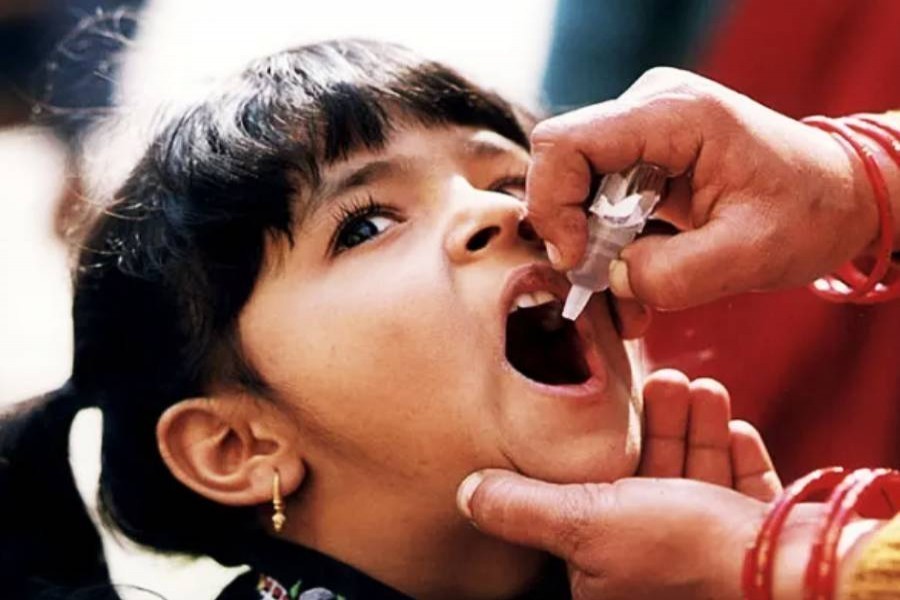A country long vulnerable to classical vibrio cholera, followed by large-scale deaths, Bangladesh, can now reasonably be considered free of the deadly diarrhoeal, virus-borne illness. Although a section of global researchers include Bangladesh among the cholera outbreak-prone countries, there are few signs here of the disease's comeback. Yet administering oral cholera vaccines to children in selected areas in Dhaka is welcome news. The ongoing 'second round' vaccination campaign in five selected areas of the capital is slated to continue till August 10. Nowadays, it doesn't need public health people's opinion to view cholera primarily as a water-borne disease. Eating spoiled food aggravates suspected cholera cases. Its insidious spread in areas crippled by the crisis of pure drinking water cannot be brushed aside.
The ongoing cholera vaccination programme has given rise to a few questions. Of those the most important one is, if the children are given the preventive doses against cholera or the vaccines are aimed at blocking the path of severe diarrhoea. Both the diseases show almost similar symptoms. Days of continuous treatment at specialised hospitals like the ICDDR, B in Dhaka can successfully deal with acute intestinal diseases. The hospital was once famed for treating suspected cholera. General people simply called it the 'Cholera Hospital'.
Given the Dhaka water and sewerage authority's alleged supply of not impeccably treated water, many point the finger at Dhaka WASA. Discoloured, smelly water coming out of the supply pipes is a cause for concern in many parts of Dhaka. So is the scenario of children and adults alike having juices and drinks and snacks etc at roadside eateries. That these drinks and foods play a major role in spreading diarrhoea among children and adolescent boys and girls has repeatedly been proved. In the rural swathes, during and after the flood water recession, paucity of sufficient pure drinking water haunts the country. Village after village have been passing through a similar drinking water scarcity during the debilitating hot and humid summers. But nearly a century back, rural people in Bangladesh were seen dying in their hundreds in dreadful cholera epidemics. Thanks to the invention of effective vaccines overseas, coupled with the innovative treatment methods introduced by the then Cholera Hospital in Dhaka, the scourge continued weakening. Bangladesh was declared free of the 'classical cholera' in a short time.
Through the ages, the very mention of cholera has continued to strike terror into the hearts of peoples in countries. The panic it causes is no less than that prompted by plague, small pox, malaria and severe flu. Medical science's relentless fight against the diseases, and their success in inventing effective cures could, finally, almost eradicate the epidemics. Prophylactic medicines also did not lag behind. A sad aspect of the whole saga is that the name of Bangladesh can still be found in the lists of countries said to be vulnerable to cholera outbreaks. The countries are Afghanistan, Democratic Republic of Congo, Ethiopia and Nigeria. Another survey says cholera badly affected India, Yemen, Russia, Middle East and northern Africa not long ago. According to epidemiologists, up to 16 February, 2022, approximately 30,629 suspected cholera cases have been reported worldwide. The confidence thus derived from the 'achievement' of making the world cholera-free sounds hollow. Suspected epidemics, or raging pandemics, cannot be banished altogether. They keep returning, some at long intervals. Given cholera's returns, the oral cholera vaccination or countrywide vaccination campaigns deserve in-depth analysis and watchful preparation.


